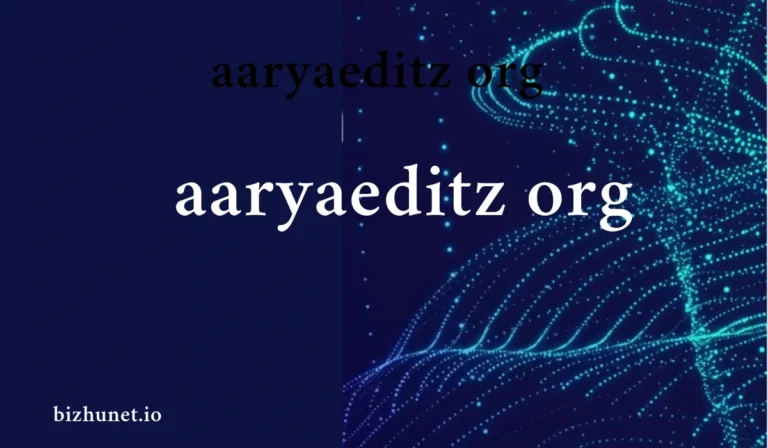Arizona Bitcoin Reserve: New Frontier in State Investments
Arizona has made headlines by pushing forward legislation to establish the Arizona Bitcoin Reserve. This move has positioned the state as a leader in cryptocurrency adoption among U.S. states. By allowing up to 10% of public funds to be invested in Bitcoin, Arizona is setting a bold example for others to follow. The concept of the Arizona Bitcoin Reserve has stirred discussions nationwide, raising questions about digital asset integration in public finance.
Arizona Bitcoin Reserve Takes a Major Step Forward
The Arizona Senate Finance Committee recently approved Senate Bill 1025, a key part of the Arizona Bitcoin Reserve strategy. This bill allows the state treasurer and public retirement systems to invest up to 10% of available funds in Bitcoin. This historic move comes as Bitcoin continues to mature as a global financial asset.
The approval of this bill reflects growing trust in Bitcoin’s potential as a reserve asset. Arizona aims to safeguard its financial future by diversifying beyond traditional assets. The Arizona Bitcoin could also become a model for other states seeking to innovate their treasury management.
Background and Motivation Behind the Arizona Bitcoin Reserve
The idea for the Arizona Bitcoin Reserve gained traction after lobbying efforts and strong support from pro-crypto politicians. Senator Wendy Rogers and Representative Jeff Weninger sponsored the bill. They aimed to create new opportunities for Arizona’s financial systems.
The motivation behind the Arizona Bitcoin is protecting public funds from inflation and promoting technological innovation. With Bitcoin’s limited supply and decentralized nature, Arizona sees it as a strategic addition to its portfolio.
Read more: Cameron basham
Key Features of Arizona Bitcoin Reserve Bill

| Feature | Description |
|---|---|
| Bill Name | Senate Bill 1025 |
| Investment Cap | 10% of public funds |
| Managed By | Arizona State Treasurer |
| Focus | Bitcoin and potentially other assets |
| Goal | Diversify reserves and hedge inflation |
Progress of the Arizona Bitcoin Reserve Bill
Arizona’s House Commerce Committee approved another bill, Senate Bill 1373, with a 6-4 vote. This bill complements SB 1025 by proposing the Digital Assets Strategic Reserve Fund. It would manage digital assets seized during criminal proceedings.
The Arizona Bitcoin is advancing at a time when other states are considering similar proposals. According to reports, 18 states currently have Bitcoin reserve bills under review. Arizona and Utah have moved furthest in the legislative process, showing how serious this movement has become.
How Arizona Bitcoin Reserve Aligns with National Trends
Former President Donald Trump’s pro-crypto policies have created an environment supportive of initiatives like the Arizona Bitcoin. His call for a national Bitcoin reserve has energized lawmakers at the state level. As a result, more states are discussing how to use Bitcoin to strengthen their financial security.
Arizona’s proactive approach stands out. The Arizona Bitcoin is not just about following trends. It’s about pioneering a financial shift that could influence both public and private sectors.
Impact of Market Volatility on Arizona Bitcoin Reserve Strategy
One challenge facing the Arizona Bitcoin Reserve is Bitcoin’s price volatility. Recently, Bitcoin experienced a 17% drop due to economic uncertainties linked to new tariff announcements. Critics argue that such volatility could put public funds at risk.
Supporters of the Arizona Bitcoin argue that Bitcoin’s long-term performance tells a different story. From trading at $5.34 in 2012 to reaching $83,223 in 2025, Bitcoin has shown massive growth. Proponents believe that Bitcoin’s fixed supply and increasing adoption provide long-term stability.
Arizona Bitcoin Reserve and Institutional Adoption
The Arizona Bitcoin aligns with a broader trend of institutional adoption of Bitcoin. Many corporations and asset managers have added Bitcoin to their balance sheets. Arizona’s decision could encourage other public institutions to explore cryptocurrency investments.
Institutions view Bitcoin as “digital gold,” a hedge against inflation and economic instability. By embracing the Arizona Bitcoin, the state is sending a strong signal about its commitment to financial innovation.
Comparison Between Traditional Reserve Assets and Bitcoin
| Aspect | Traditional Assets | Bitcoin |
| Inflation Resistance | Moderate | High |
| Accessibility | Controlled | Decentralized |
| Supply | Expandable | Fixed (21 million limit) |
| Transaction Speed | Slow | Fast |
| Transparency | Limited | Full Blockchain Audit |
Challenges and Criticism of Arizona Bitcoin Reserve
Despite its innovative approach, the Arizona Bitcoin faces criticism. Opponents argue that Bitcoin’s price volatility could lead to financial instability. Others question whether public funds should be invested in relatively new asset classes.
Democratic lawmakers in Arizona largely opposed the bill, citing risks to taxpayers’ money. However, Republican lawmakers believe that responsible management can mitigate these risks. They stress that only 10% of public funds are being allocated, and safeguards are in place.
What Arizona’s Move Means for Other States
The Arizona Bitcoin could inspire a wave of similar legislation across the United States. Already, states like Texas and Pennsylvania have introduced Bitcoin reserve bills. If Arizona’s experiment proves successful, it could normalize the use of digital assets in public finance.
By moving first, Arizona gains a strategic advantage. It shows willingness to adapt to new financial realities and could attract blockchain startups and investors looking for crypto-friendly environments.
Read more: Leihmutterschaft kosten
Future Outlook for Arizona Bitcoin Reserve
If Arizona’s Bitcoin Reserve plan succeeds, it could set a lasting precedent for cryptocurrency adoption at the state level. Future updates to the bill might include expanding investment options to other digital assets like Ethereum or tokenized commodities.
The state also plans to use new tools like the Bitcoin Strategic Reserve Tracker. This tracker monitors Bitcoin-related legislation and helps officials manage their digital assets responsibly.
As Bitcoin continues to gain legitimacy worldwide, Arizona’s early investment in the Arizona Bitcoin could pay off handsomely. It may also help future-proof the state’s finances against inflation and monetary instability.
| Category | Details |
| Initiative | Arizona Bitcoin Reserve |
| Purpose | Hedge inflation, diversify assets |
| Investment Cap | 10% of public funds |
| Current Status | Passed Senate Finance and House Commerce Committees |
| National Impact | Could inspire other U.S. states |
Frequently Asked Questions (FAQs)
What is the Arizona Bitcoin Reserve?
The Arizona Bitcoin is a proposed fund that would allow Arizona to invest up to 10% of its public funds in Bitcoin.
Who manages the Arizona Bitcoin?
The Arizona State Treasurer would be responsible for managing investments under the Arizona Bitcoin.
Why is Arizona investing in Bitcoin?
Arizona sees Bitcoin as a hedge against inflation and a way to diversify public financial assets for future stability.
Is the Arizona Bitcoin risky?
While Bitcoin is volatile, supporters argue that limited exposure and proper management can minimize risks.
Conclusion
The Arizona Bitcoin Reserve marks a bold step into the future of finance. By allowing public funds to invest in Bitcoin, Arizona is betting on innovation and diversification. If managed carefully, the Arizona Bitcoin Reserve could not only secure the state’s financial future but also lead a national shift toward digital asset adoption.




